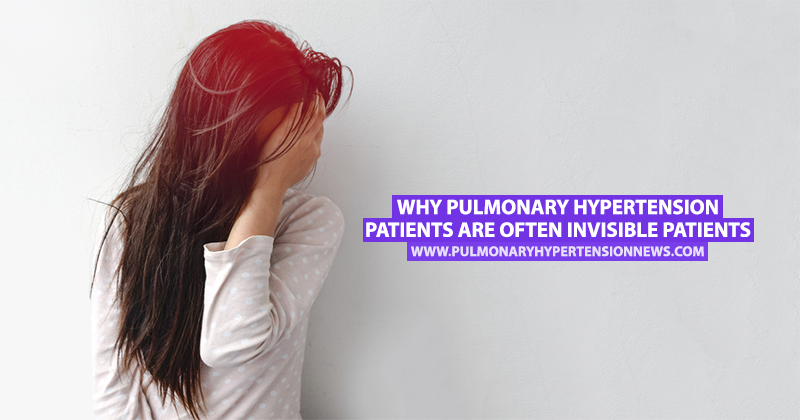Why Pulmonary Hypertension Patients Are Often Invisible Patients

An “invisible illness” is a term used for any disease or condition which is not overtly obvious simply by looking at a person.
MORE: 14 invisible illnesses you may not be aware of
Most people with pulmonary hypertension (PH) would be considered an “invisible patient,” meaning they’re considered healthy and able-bodied because they don’t look sick.
However, as this blog post on biomedcentral.com points out, just because a person isn’t using supplementary oxygen or a nasal cannula doesn’t mean that they don’t have a serious lung condition. While many PH patients do require oxygen therapy, many don’t need it and others may only need it during the night or while exercising.
Raising awareness of invisible illnesses like pulmonary hypertension will help improve the understanding of what patients go through and society’s ability to recognize their needs. Many people with PH will have a disability sticker for their vehicle or a wheelchair because they’re unable to walk for any length of time, but strangers who see them getting out of their cars and walking perfectly well may question their need for the sticker or wheelchair.
Even well-meaning friends and family may come to expect too much from a person with PH, not recognizing when the person is too fatigued to do something or not realizing the severity of their illness simply because they can look well.
MORE: The treatment options available for pulmonary hypertension
Pulmonary Hypertension Today is strictly a news and information website about the disease. It does not provide medical advice, diagnosis or treatment. This content is not intended to be a substitute for professional medical advice, diagnosis, or treatment. Always seek the advice of your physician or another qualified health provider with any questions you may have regarding a medical condition. Never disregard professional medical advice or delay in seeking it because of something you have read on this website.







